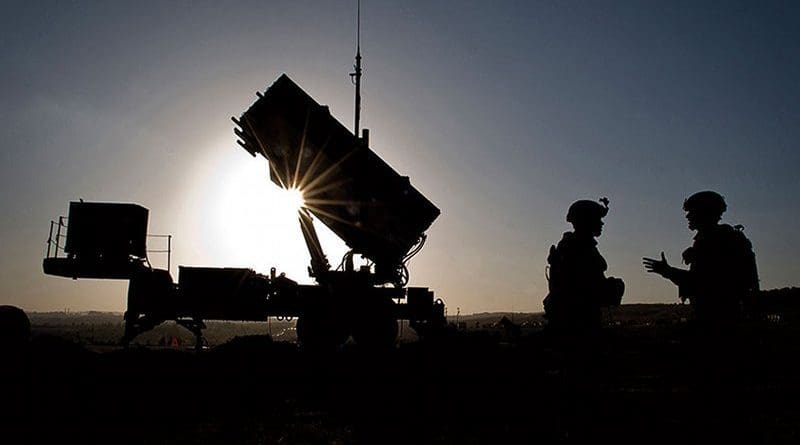US To Send Troops And Air Defenses To Protect Saudi Arabia, UAE
By RT
More US troops and air defense systems are headed for the Persian Gulf to “bolster defenses” of Saudi Arabia and the United Arab Emirates, the Pentagon announced after the attack on Saudi oil facilities.
Speaking at the Pentagon on Friday, US Defense Secretary Mark Esper blamed the September 14 attack on Saudi oil facilities on Tehran, calling it a “dramatic escalation of Iranian aggression” in the region. In response to requests for assistance from Saudi Arabia and the UAE, Esper said the US will expedite the delivery of weapons and send more troops and equipment to the Gulf, primarily “air and missile defense” assets.
The deployment has three objectives, according to Esper: to help bolster Saudi and Emirati defenses, “ensure the free flow of commerce” in the Persian Gulf, and “protect and defend the international rules-based order” that Iran is supposedly defying.
Exact details of the deployment are still being worked out, said General Joseph Dunford, chairman of the Joint Chiefs of Staff, adding that he could only describe it as “not thousands.”
The newest batch of troops and missiles joins a steady stream of military assets the Pentagon has been sending to the region for months, parallel to the “maximum pressure” campaign of sanctions against Iran. Tehran has repeatedly said that any attack on Iran would be met with a disproportionate and devastating response against both US assets and allies like Saudi Arabia and the UAE.
Tehran has rejected the accusations of involvement in the September 14 attack, the responsibility for which was claimed by the Houthi rebels in Yemen. Anonymous US officials have accused Iran of launching the attack from its territory, but neither Esper nor Dunford wanted to comment on that claim.
Esper maintained that the weapons used in the attack were “Iran-produced and not launched from Yemen,” but would not say more, except to note that Saudi Arabia was “still vulnerable to attack.”
The strike on Aramco’s Abqaiq petroleum facilities and Khurais oil field temporarily crippled Saudi oil production, but resulted in no human casualties, and Saudi officials insisted that things would get back to normal by the end of September.
Wherever the drones and missiles came from, the attack was a major embarrassment to the Saudis – as well as the US, which has supplied the Kingdom with most of its air defense hardware. US Secretary of State Mike Pompeo, who has just returned from Saudi Arabia, tried to dismiss the issue by saying that “some of the finest [weapons] in the world don’t always pick things up.”
The Russian military has taken note of the lack of performance by the US-supplied Patriot and other air defense systems, and President Vladimir Putin even joked that the Saudis ought to consider buying the Russian missiles instead, following the lead of Iran and Turkey.
On Friday, the Houthis announced they would stop their attacks on Saudi Arabia if the Saudi-led coalition would halt its operations in Yemen. Riyadh has not officially responded to the offer.

